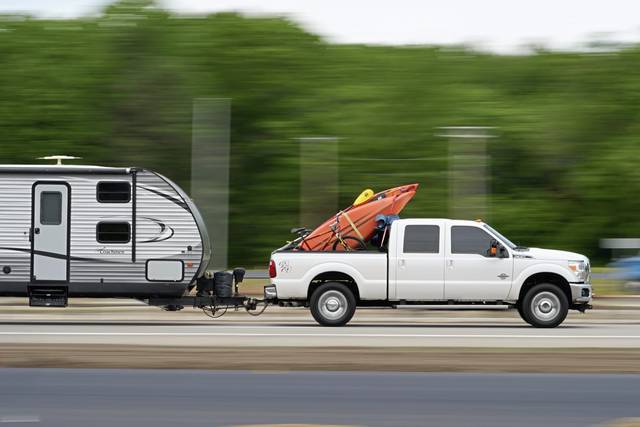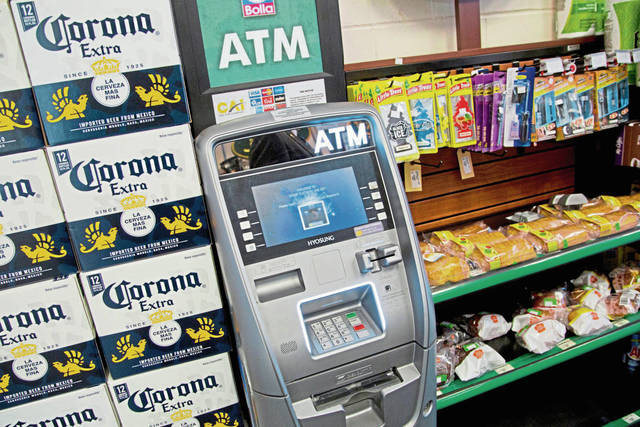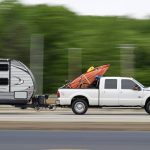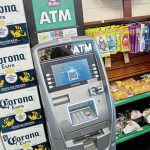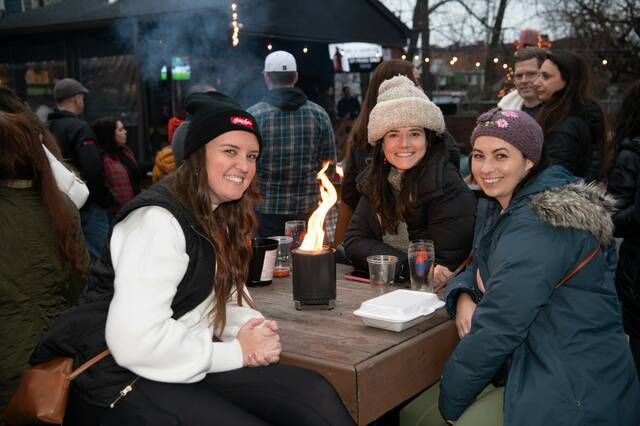“On the road again. Just can’t wait to get on the road again.”
Willie Nelson sang it, and Americans are living it this summer — eager to make up for travel time lost during the pandemic shutdown.
“Obviously, Memorial Day weekend was extremely busy for travel, and we’re seeing that driving vacations are very popular in this post-covid world,” said Marita William, manager of travel promotions and product development for AAA East Central.
“Things are actually very good for us right now, vacation-wise,” said Joe Weigler, owner of Shadyside Travel Agency in Shadyside. “Bookings have really picked up, and not just for this year, but with more people planning ahead for next year.
“I had a client going to Mexico in September, which is considered the off-season, and the hotel they wanted was already sold out,” he said. “I’ve never had that happen before.
“People have the money to go that they saved last year, and they have the pent-up desire to go,” he said.
“Americans are known for taking shorter trips, maybe a long weekend or a week,” Williams said. “We’re seeing that jump to 10 days or two weeks. It’s been kind of mind-boggling to watch.”
Where are Western Pennsylvanians going?
If they’re trying to go to Europe, they’re not booking through Weigler.
“We’ve lost most of our European business,” he said. “We have a good deal of business for Mexico, the Caribbean and Florida, and quite a bit to California.”
“The top destinations for our road trip travelers from Western Pennsylvania are the beaches from Rehoboth (Delaware) to Hilton Head (South Carolina) — North Carolina, South Carolina and Virginia Beach — along with coastal destinations like Savannah and Charleston,” Williams said.
Outdoor destinations — including campgrounds and state and national parks — also are popular this summer, she added.
Expert help
Though many travelers have become accustomed to planning and booking their own trips online, Williams said, “We’re seeing, now more than ever, that it pays to use a travel adviser.”
Advisers will have the latest information on any remaining pandemic protocols or potential gas shortages, like the one caused by the recent Colonial Pipeline shutdown due to a ransomeware attack, she said.
The AAA website also offers more than 200 pre-planned road trips grouped by region that anyone can access, she noted.
If you’re leaving the U.S., Weigler said, “You need to be aware of any protocols that exist out of the country. Those can change pretty quickly. Travel agents keep up on all of that.
“You don’t want to get somewhere and be turned away,” he said.
Wherever you decide to go, Williams and Weigler say, it pays to plan ahead, both for safety’s sake and to avoid unpleasant surprises that could derail a good time.
For road travelers, Williams offered these general tips:
• Since many cars have been sitting in garages for the past year, do a safety check before hitting the road. A vehicle safety checklist is available nhtsa.gov.
• Fill the gas tank at every opportunity to avoid running low.
• Carry masks and sanitizer for hands and other surfaces.
• Don’t let your guard down.
Safety factors
In the past year or more, many of us haven’t gone much farther than the local grocery store. We haven’t been using our travel smarts, and our skills could be a little rusty.
Travel safety can be affected by where you go and even who you are.
According to the travel website, twobirdsbreaking free.com, some countries are generally safer than others, some towns and cities are safer than others, and some neighborhoods are safer than others. The countryside tends to be safer than the city.
Personal factors like age, body type, gender, race, religion, appearance and attitude can affect safety — as can the amount of risk you expose yourself to while traveling.
Obviously, a guided group tour has built-in security not present when you set out to trek the Himalayas alone.
Here are some general guidelines for helping to insure a positive travel experience:
• Get travel insurance
• Reserve accommodations in advance and try to arrive during the daytime
• Travel light and never leave belongings unattended
• Lock your luggage
• Carry backups of essential documents and hide emergency cash
• Avoid tourist traps, keep a low profile and avoid forming habits that a predator could observe
• Always inform someone of where you are going
• In unfamiliar territory, carry a physical guidebook, in case electronic devices fail
• Don’t participate in high-risk activities or abuse alcohol or drugs
• Learn some self-defense techniques
• Trust your gut if something doesn’t feel right.
Safety clothing and gear
Bags and backpacks can be easily snatched, plus they can become cumbersome during a whole day of sightseeing. Invest in some pickpocket-proof clothing, such as travel pants made of slash-proof material with double pockets.
T-shirts, underwear and socks with zippered pockets; security belts; or leg, wrist and neck wallets are other options for keeping identification, cards and cash safe.
Consider a cellphone leash for that easy-to-lose item.
If a backpack is a necessity, there are anti-theft models with features including zipper openings on the back, slash-resistant material and shoulder straps, interlocking zipper sliders, internal hidden pockets and even cables for tethering the pack to a fixed object.
Financial safety
Notify your bank before you travel and carry a backup credit card.
If possible, use an ATM at a bank. Convenience ATMs have less security and are more subject to tampering.
Practice standard ATM safety — avoid using the ATM at night, look for signs of tampering, stand close to the machine and cover the keypad, don’t withdraw large sums and stash your withdrawal before you walk away.
Don’t accept help from anyone but bank personnel if there is a problem, and don’t leave if the machine swallows your card — immediately call the card issuer or freeze it yourself via an app.
Room safety
A woman recently shared a TikTok video recounting how two men slid a device under her hotel room door in Ocean City, Md., and opened it while she was alone inside. She was able to slam the door and put on the deadbolt.
It’s a reminder to always secure the deadbolt, if one is available.
If you’re staying in accommodations without one, carry a rubber door wedge or other door-jamming device — but keep in mind that these only work with doors that open inward.
Internet and data safety
Javelin’s 2020 Identity Fraud Survey said that 13 million consumers in the U.S. were affected by identity fraud in 2019, with total losses of nearly $17 billion. That’s about 1 in 20 Americans.
Common avenues for theft of personal information include public Wi-Fi networks, lost or stolen debit or credit cards and discarded or stolen documents containing personal information.
Here are some ways to keep your information secure while traveling:
• Use a VPN when using public Wi-Fi
• Encrypt your email
• Use a password manager and set up two-factor authentication for online accounts
• Install tracking software on your devices
• Back up important data.
Food safety
If all the restaurants in a particular area seem busy except for one, there’s probably a reason why people are avoiding it. This is one situation where it’s probably a good idea to follow the crowd, even if you have to wait a while for your meal.
Be careful about taking free food or drink from random strangers on the street or in an establishment. Drinks especially can be spiked with a drug when left unattended or when a traveler accepts a drink they didn’t buy or from a new acquaintance.


